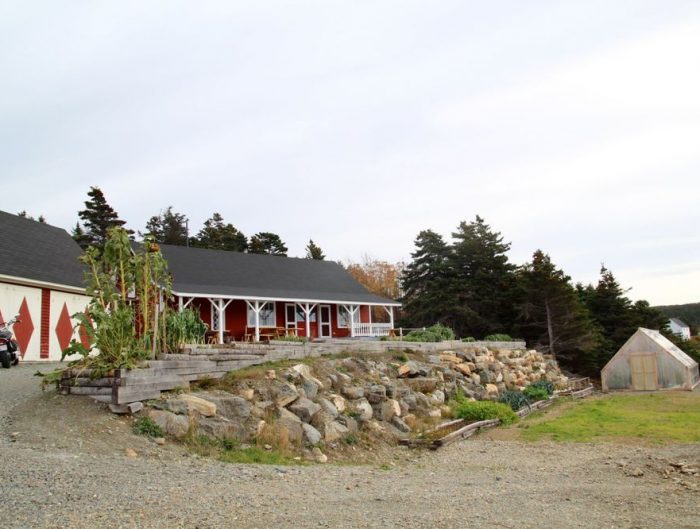Tint of Ink recently sat down with AJ Willis, epidemiologist and graduate of Memorial University’s Masters of Public Health program to talk Doctors Without Borders, Africa and Ebola.
Tint of Ink: You are originally from Ontario. Where were you born and when did you come to Newfoundland?
AJ: I was born in Sarnia, Ontario and moved here in 2008.
Tint: What is your education?
AJ: I have a Bachelor of Arts and Science in International Development and Biology from the University of Guelph and I graduated from Memorial University of Newfoundland with my Masters of Public Health in 2009.
Tint: When did you first join Doctors Without Borders?
AJ: In 2012. I did 10 months in Northern Nigeria working mostly with malaria, cholera, and measles. I also did a mission in 2013 in the Democratic Republic of the Congo and then back to DR Congo in 2014.
 Tint: Describe your first few “tours” with DWB
Tint: Describe your first few “tours” with DWB
AJ: In Nigeria I was part of an emergency response team that set up surveillance to identify where outbreaks were so that a team could be sent to respond as quickly as possible. The vast majority of the outbreaks were cholera and malaria.
Cholera outbreaks were incredible because the treatment is so incredibly simple (water and electrolytes for the most part) that you can go from a high mortality before the intervention to almost zero with an intervention. We also saw a massive spike in malaria cases at a maternal and child health project we had set up. Getting there in the morning there would be a couple hundred patients waiting and you would see 500 people in the course of a day. With malaria it is generally about the time with which people arrive to hospital. If it is early, then you treat with a single treatment (artemisinin combination therapy) and they will be good. But if they come late, because they don’t have transportation or it cost money so they wait to see if the illness will pass, the cases can be pretty grave.
Its also a good example of targeted interventions as malaria is most severe for children under 5 and pregnant women.
After that I had a measles emergency intervention in DR Congo. It was in a super isolated part of the country and all movement was by motorcycle which makes cold chain (a temperature-controlled supply chain) complicated.
Lastly I was back in DR Congo. Mostly working with malaria. The cases of malaria in Congo have skyrocketed in the past few years but the reasons for the increase are not altogether clear. I was doing mortality assessments and in some places without any assess to timely care there would be huge spikes in case. We tend to do mobile clinics (drive somewhere, set up tents, treat as many people as possible and go home) but it is impossible to go everywhere. n Congo especially sometimes places are altogether inaccessible due to terrain or war.
Tint: When are you going back? Where are you going?
AJ: January 6th, 2015 I will be heading to Liberia.
“From Dec. 1 to 25, some 49 cases of Ebola were reported in Grand Cape Mount County. This included 27 confirmed cases, nine probable and 13 suspected. Some 3,413 people have died in Liberia in the worst Ebola epidemic on record. In the three worst-hit countries — Liberia, Sierra Leone and Guinea — the outbreak has killed about 7,842 out of 20,081 cases, according to the World Health Organization. However, under-reporting means the number of deaths and cases is probably much higher, the WHO says.” from Reuters, Dec. 29, 2014.
Tint: Why is Ebola important? Why is it important to you to help out?
AJ: Ebola is important for the same reason that malaria and cholera are important, it is killing people. The difference is that, because it is a new disease, there wasn’t a lot of knowledge within the population at recognizing it and dealing with it. This gave it the chance to spread unchecked. Additionally, because the case numbers are low compared to something that is widely endemic like malaria, with a concerted effort there is the chance to eliminate the disease altogether.
Another point is that without treatment, Ebola has a very high mortality rate. However, with treatment we can see a large decrease in the mortality.
What you have to understand about the numbers in the centres is that they have limited capacity so they see the most severe patients. Nonetheless, in the field it is decreasing but you’ll probably see a steady decrease as people are more and more able to recognize the disease early and bring them to the hospital.
Why I am going? Because it is my job. People donate so Doctors Without Borders can respond on their behalf. I can’t fix my car so I go to a mechanic. Not everyone is in a position where they can leave their jobs and join us in the field, so those people give money.
I work in places with Ebola to send the message from people who donated to patients in under-served populations; that these patients are important and people around the world are willing to make sure they are not alone.











Leave A Reply